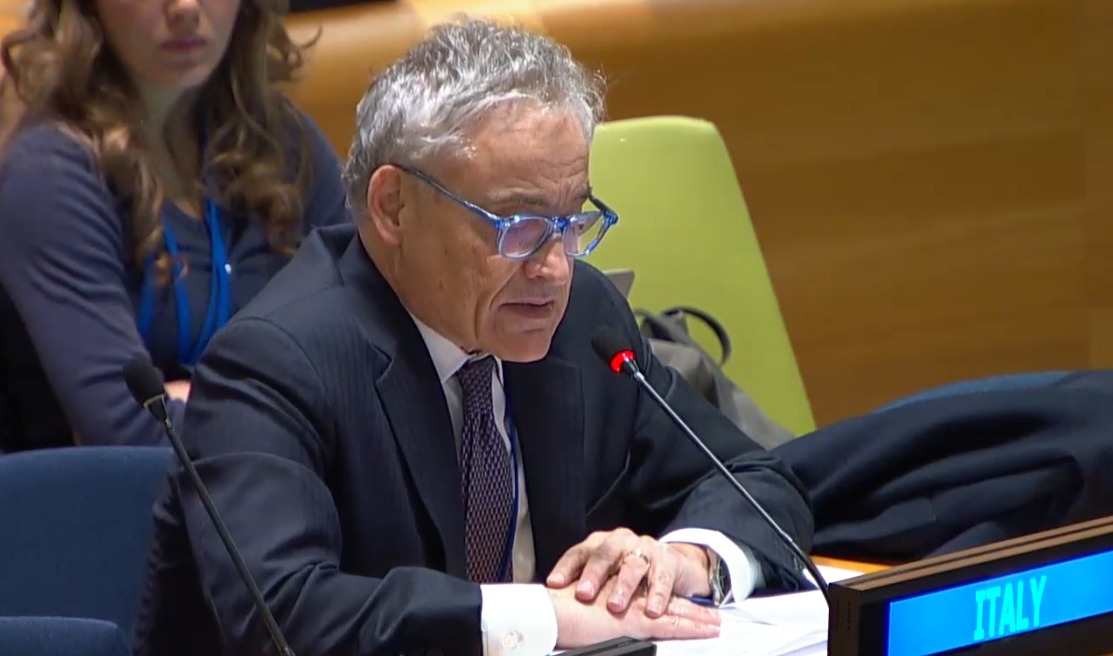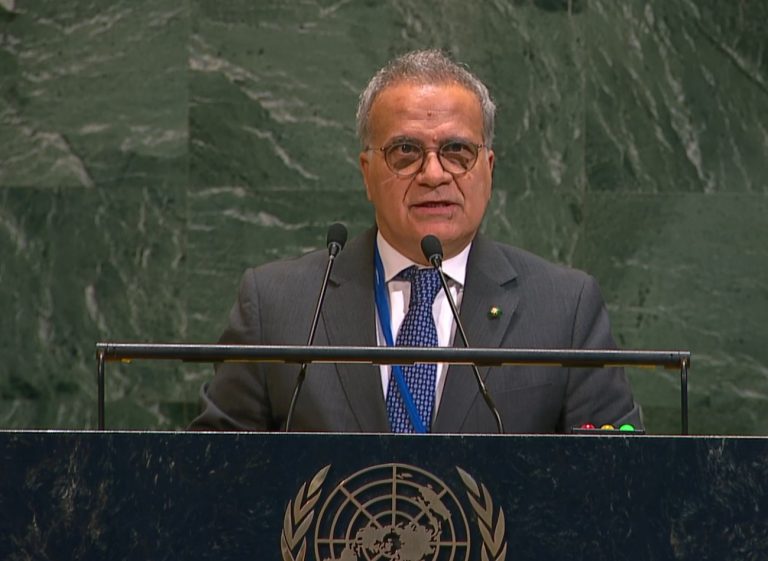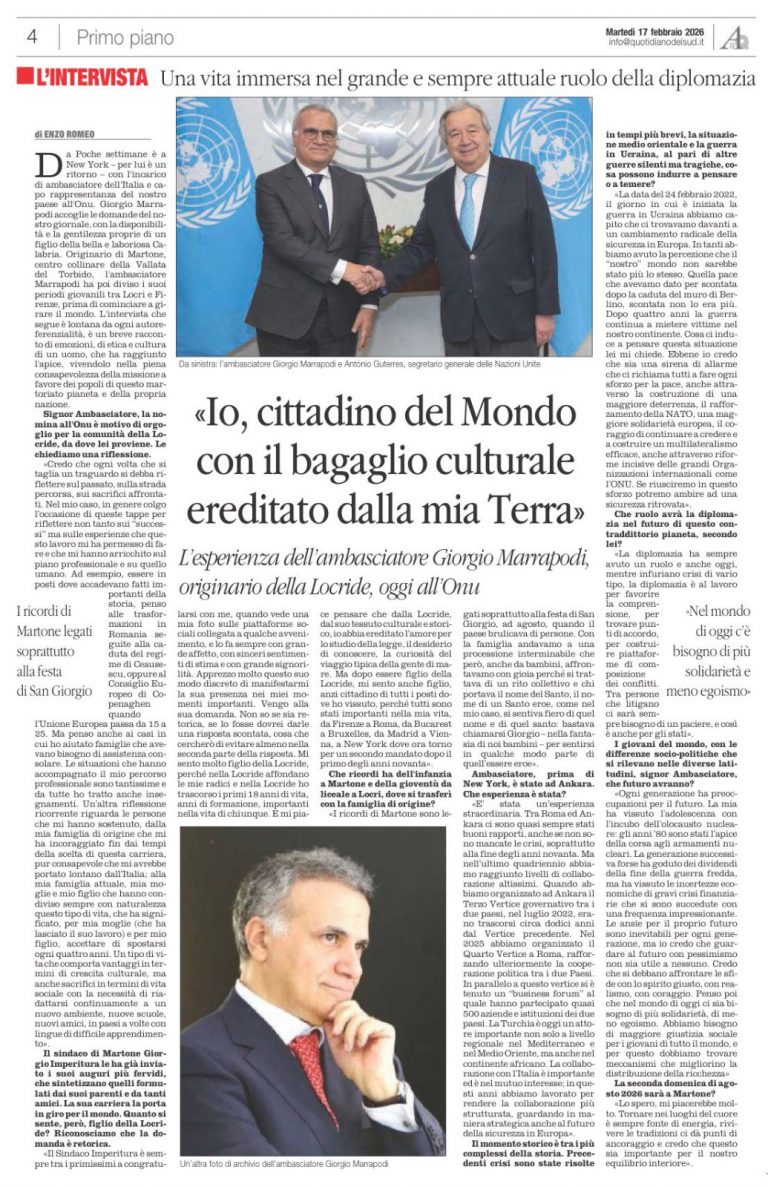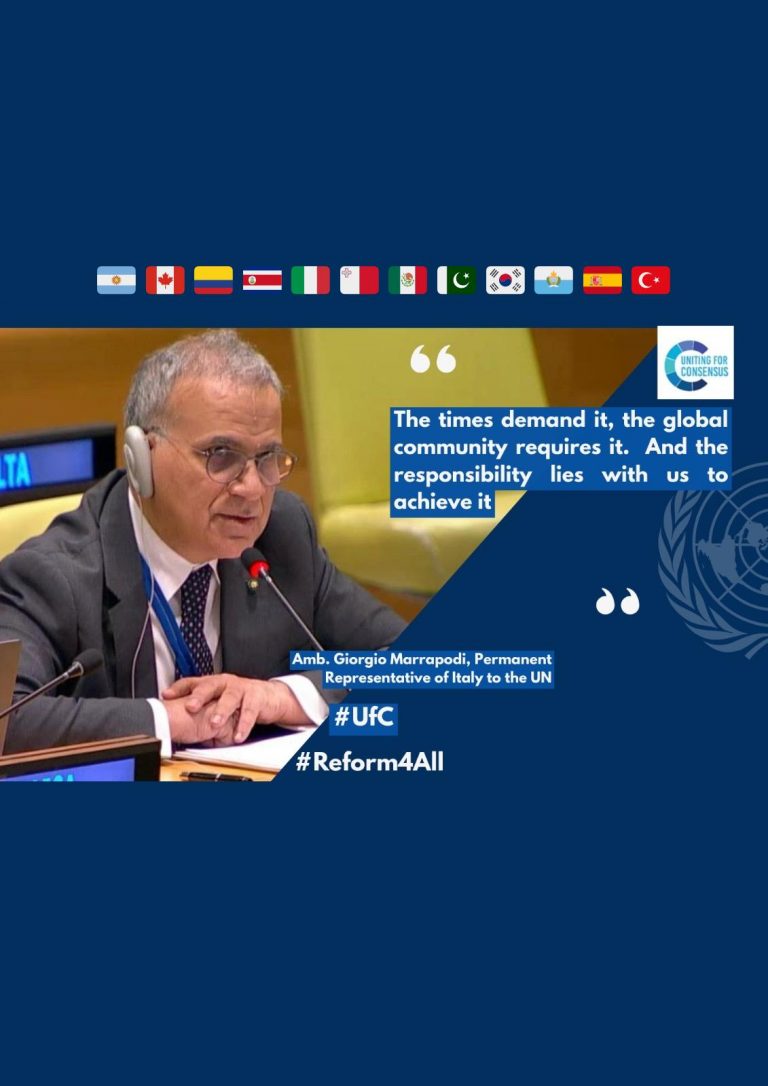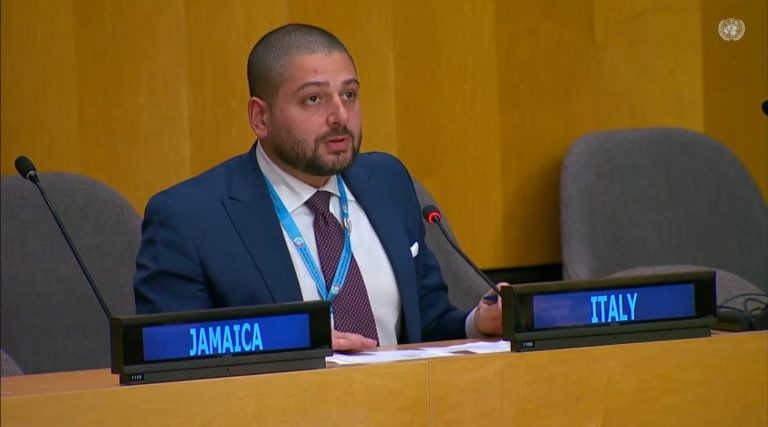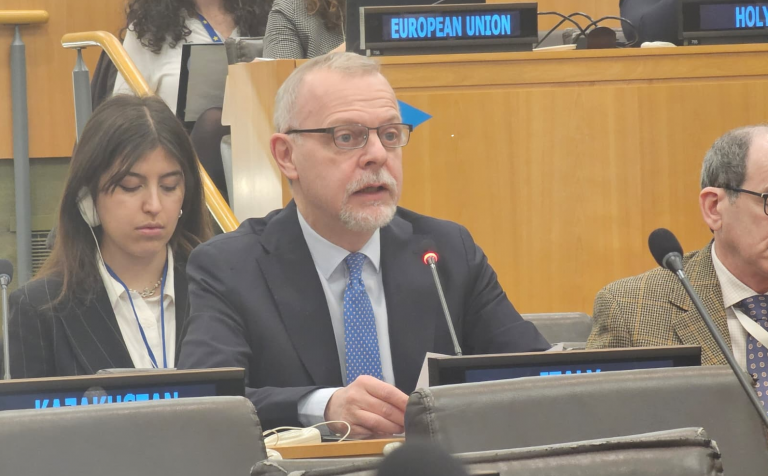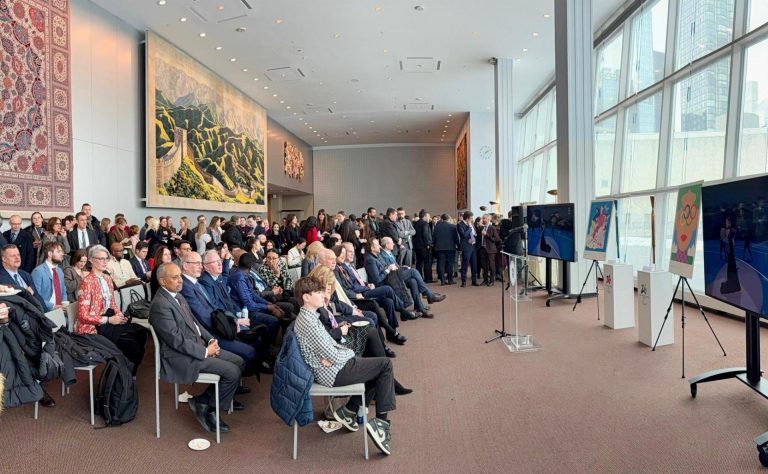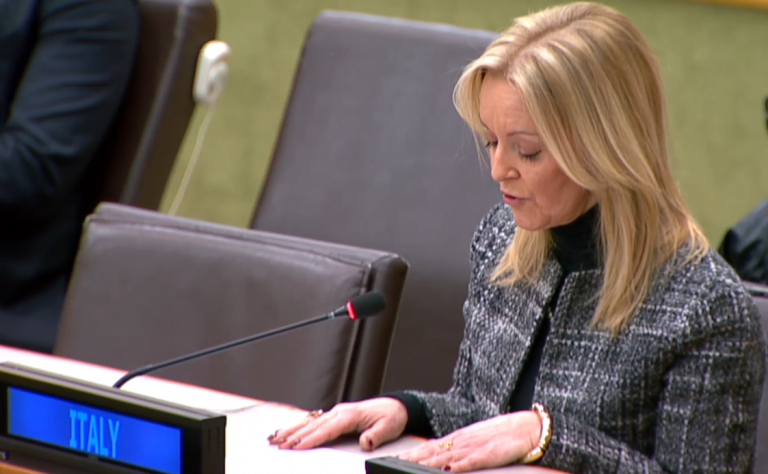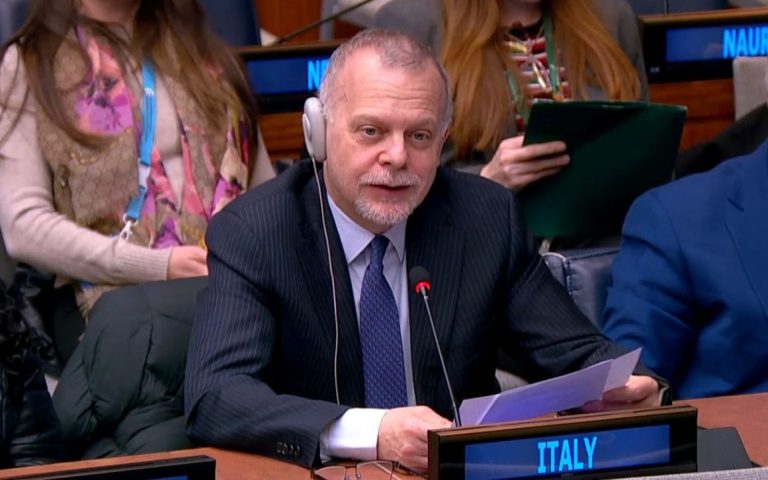Distinguished Co-Chairs,
I will make this intervention on behalf of Uniting for Consensus (UfC), a diverse, cross-regional, pro-reform, Group that comprises, Argentina, Canada, Colombia, Costa Rica, Malta, Mexico, Pakistan, Republic of Korea, San Marino, Spain, Türkiye and my own country, Italy.
I wish to thank you for convening this second meeting of the Intergovernmental Negotiations on Security Council reform for this 79th Session of the General Assembly, focusing on the veto cluster.
The UfC’s position on the veto is simple and consistent. While firmly advocating for the outright abolition of the veto, as its abuse is the root cause of many of today’s shortcomings of the present Council, the UfC acknowledges the complexities involved in this matter. Although the vast majority of the UN membership agrees with us on ideally abolishing the veto, which is an anachronistic tool, this requires that the five Permanent members (P5) be willing to relinquish their prerogative and agree to the corresponding Charter amendment.
For the time being we therefore call for immediate tangible actions to address how to best limit the use of the veto. The UfC proposes that the P5 commit not to use the veto in specific circumstances, such as, but not limited to, mass atrocities and war crimes, in line with the existing initiatives such as the Franco-Mexican initiative and the ACT code of conduct.
Similarly, we note that just last September, the General Assembly decided to fully implement and adhere to all provisions of the Charter of the United Nations as they relate to the decision-making process in the Security Council, including Article 27(3) of the Charter.
The use of the veto carries a heavy responsibility. Every time it prevents the Security Council from acting on issues of international peace and security, it undermines our collective security framework, with devastating consequences particularly when thousands of civilian lives are at risk. Furthermore, its use should be subject to accountability, and to this regard we welcome the “veto initiative” spearheaded by Liechtenstein at the General Assembly.
UfC is ready and willing to discuss how these measures, which are currently implemented on a voluntary basis, could be formalized or codified, if you will, in the context of a comprehensive reform of the Security Council, so as to make them legally binding in the future.
On the whole we are convinced that the most viable and impactful approach to advance the reform of the Security Council and balance the veto and reduce its abuse is to increase the number of elected members on the Security Council.
We would note that not only would new permanent members make the Council less able to advance global peace and security, it would also make future changes to the UN Charter more difficult, rendering the UN less able to adapt to future challenges.
An increased presence of elected non-permanent members would shift the equilibrium away from the disproportionate influence exerted by permanent members. In the context of a reformed Security Council as per the UfC proposal the weight of the elected members in the decision-making process would be much higher vis-a-vis the P5 compared to the current situation. A Security Council with more non-permanent members would re-balance the Council by being able to manage its agenda with more effectiveness.
Moreover, our proposal would provide more opportunities for all Member States to be represented on, and contribute to the decision-making in, the Council, and thus increase the representation of underrepresented regions. We believe it would be the best solution to achieve a reformed Security Council that is more democratic, accountable, effective, transparent and efficient.
For the reasons we have already mentioned, we are opposed to new vetoes. We also do not support any piecemeal approach that includes in a reform of the Security Council a review clause as a way to gradually introduce prerogatives like the veto for certain Member States.
Distinguished Co-Chairs, acknowledging and building on broad agreement on the need for UNSC reform among Member States, and with a view to narrowing the existing divergences, we look forward to continuing these fruitful exchanges in the IGN on the five clusters of reform. We cannot discuss the veto in a vacuum without discussing, for instance, the categories of membership, as all clusters are strongly interlinked. Let us build more common ground on those so that we can bring about a Security Council that truly serves the global community.
I thank you.







